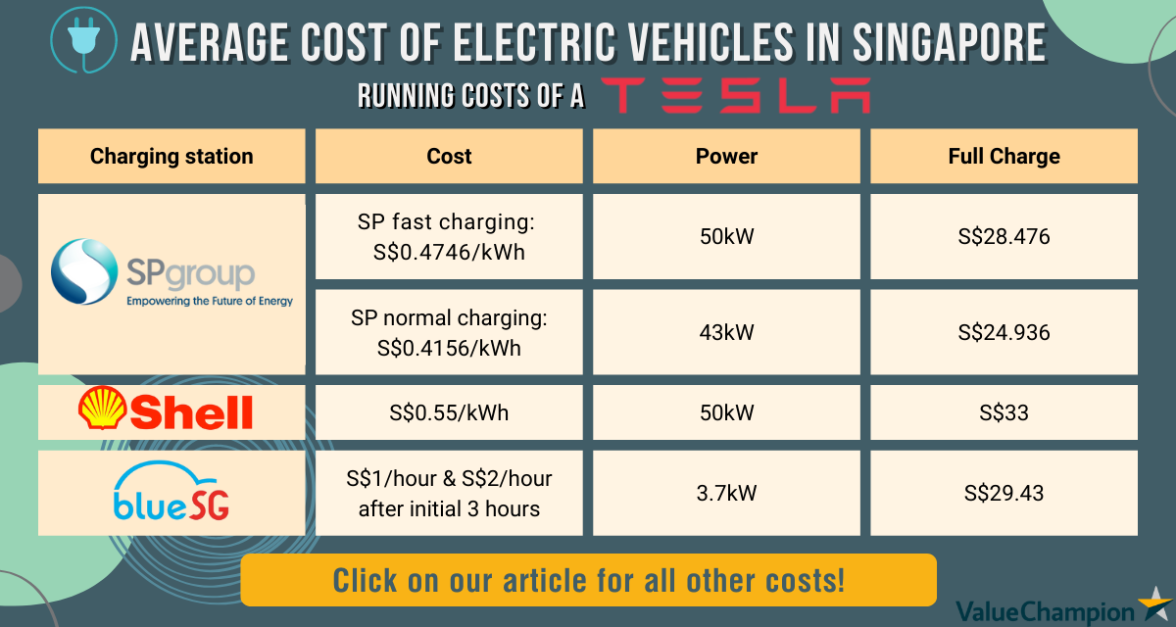The Shocking Truth About Charging Costs
When it comes to owning an electric Car, many people are drawn to the idea of saving money on gas and reducing their carbon footprint. However, what most people don’t realize is that there are hidden costs associated with charging an electric car that can add up over time. In this article, we will explore the shocking truth about charging costs and how they can impact your wallet.

Image Source: cloudinary.com
One of the biggest hidden costs of charging an electric car is the price of electricity. While it is true that electricity is generally cheaper than gasoline, the cost can vary depending on where you live and when you charge your car. In some areas, electricity rates are higher during peak hours, which can significantly increase the cost of charging your car. Additionally, if you choose to charge your car at a public charging station, you may have to pay a fee for using the service.
Another hidden cost of charging an electric car is the price of installing a Home charging station. While you can plug your electric car into a standard wall outlet, it can take a long time to fully charge your car this way. To speed up the charging process, many electric car owners choose to install a home charging station, which can cost anywhere from a few hundred to a few thousand dollars. This initial investment can add up quickly, especially if you need to hire an electrician to install the station.
In addition to the cost of electricity and charging equipment, there are also maintenance costs associated with owning an electric car. While electric cars are generally cheaper to maintain than gas-powered cars, they still require regular maintenance to keep them running smoothly. This can include things like replacing the battery, servicing the electric motor, and repairing any electrical issues that may arise. These maintenance costs can add up over time and should be factored into your overall budget when considering the cost of owning an electric car.
One of the most surprising fees associated with charging an electric car is the cost of using public charging stations. While there are many free charging stations available, some stations require you to pay a fee to use their services. These fees can vary depending on the location and the type of charger, but they can add up quickly if you rely on public charging stations regularly. Additionally, some electric car owners choose to purchase a subscription service that gives them access to a network of charging stations for a monthly fee, further adding to the overall cost of charging their car.
Overall, the shocking truth about charging costs is that there are many hidden fees and expenses that can add up over time. From the price of electricity to the cost of installing a home charging station, owning an electric car can be more expensive than you might think. However, with proper planning and budgeting, you can minimize these costs and enjoy the many benefits of driving an electric car. So, the next time you plug in your electric vehicle, remember to consider the true cost of charging and make sure you are prepared for the financial impact.
Crunching the Numbers: Electric Car Expenses
When it comes to the world of electric vehicles, there is often a lot of focus on the environmental benefits and the futuristic technology. However, one aspect that is often overlooked is the actual cost of owning and operating an electric car. Sure, you may not have to pay for gas anymore, but what about the cost of charging your vehicle? In this article, we will delve into the hidden expenses of owning an electric car and crunch the numbers to give you a better understanding of the true costs.
First and foremost, let’s talk about the cost of the electricity itself. Charging your electric car at Home is typically much cheaper than filling up a gas tank, but the cost can still add up over time. The average cost of electricity in the United States is around 13 cents per kilowatt-hour. Depending on the size of your electric car’s battery and how much you drive, you could be looking at anywhere from $30 to $60 a month in charging costs. While this is significantly cheaper than gas, it’s important to factor this into your budget when considering an electric vehicle.
In addition to the cost of electricity, there are other expenses to consider when owning an electric car. For example, you may need to install a charging station in your home, which can cost anywhere from a few hundred to a few thousand dollars. And if you don’t have a dedicated parking spot or garage, you may need to rely on public charging stations, which can also add up over time.
Maintenance costs are another factor to consider. While electric cars are generally cheaper to maintain than traditional vehicles, they are not maintenance-free. You will still need to replace tires, brakes, and other parts, as well as keep up with regular Inspections and maintenance. These costs can vary depending on the make and model of your electric car, so it’s important to do your research and budget accordingly.
One often overlooked cost of owning an electric car is the impact on your home’s electrical system. Charging an electric vehicle can put a significant strain on your home’s electrical wiring and circuitry, especially if you are charging multiple vehicles or appliances at the same time. This can lead to higher utility bills and the need for costly upgrades to your home’s electrical system.
Another hidden cost of owning an electric car is the depreciation factor. While electric vehicles are generally more expensive upfront than their gas-powered counterparts, they also tend to depreciate faster. This means that you may not recoup as much of your initial investment when it comes time to sell or trade in your electric car. It’s important to consider this factor when calculating the overall cost of ownership.
In conclusion, while owning an electric car can save you money on gas and reduce your carbon footprint, it’s important to consider the hidden costs that come with it. From the cost of electricity to maintenance expenses to the impact on your home’s electrical system, there are many factors to take into account when crunching the numbers on electric car expenses. By doing your research and budgeting accordingly, you can make an informed decision about whether an electric vehicle is right for you.
Unveiling the Hidden Costs: How Much Does it Really Cost to Charge Your Electric Car?
Revealing the Surprising Fees of Charging
When it comes to owning an electric car, there are many benefits to consider. From reducing your carbon footprint to saving money on gas, electric vehicles are becoming more and more popular. However, one aspect that many people may not consider is the cost of charging their electric car. While it’s true that electric cars are cheaper to fuel than traditional gasoline-powered vehicles, there are still some hidden costs to be aware of.
One of the most surprising fees of charging an electric car is the cost of installing a Home charging station. While you can plug your electric car into a standard wall outlet, it can take much longer to charge than if you had a dedicated charging station. The cost of installing a home charging station can vary depending on the type of charger you choose and the complexity of the installation. On average, you can expect to pay anywhere from $500 to $2000 for a home charging station.
Another surprising fee of charging your electric car is the cost of public charging stations. While many public charging stations are free to use, there are some that require payment. The cost of charging at a public station can range from a few dollars to over $10, depending on the location and the speed of the charger. In addition, some charging stations require a membership or subscription fee, adding to the overall cost.
One hidden cost of charging your electric car that many people overlook is the impact on your home’s electricity bill. Charging an electric car can increase your electricity usage significantly, especially if you charge at home every day. While the cost of electricity is generally lower than gasoline, it’s important to factor in the additional cost of charging your electric car when budgeting for your monthly expenses.
Another surprising fee of charging your electric car is the cost of battery replacement. While electric car batteries are designed to last for many years, they will eventually need to be replaced. The cost of a new electric car battery can be quite expensive, ranging from $5000 to $15000 or more, depending on the make and model of your vehicle. This is an important cost to consider when deciding whether or not to purchase an electric car.
In addition to these surprising fees, there are also some hidden costs associated with owning an electric car that may not be immediately apparent. For example, some electric car models require specialized maintenance and repairs that can be more expensive than traditional vehicles. In addition, the resale value of electric cars can be lower than gasoline-powered vehicles, leading to potential financial losses in the long run.
Overall, while owning an electric car can save you money on fuel and reduce your carbon footprint, it’s important to be aware of the hidden costs of charging. From the cost of installing a home charging station to the expense of replacing the battery, there are several fees to consider when budgeting for an electric car. By understanding these costs upfront, you can make an informed decision about whether or not an electric car is right for you.
Unmasking the Real Price of Powering Up
Electric Cars have become increasingly popular in recent years as more and more people look for environmentally-friendly transportation options. However, despite the many benefits of driving an electric vehicle, there are hidden costs that many people may not be aware of. One of the biggest hidden costs of owning an electric car is the price of charging it.
When people think about the cost of owning an electric car, they often focus on the savings they will make on fuel compared to a traditional gasoline-powered vehicle. While it is true that electric cars are generally cheaper to fuel than their gasoline counterparts, there are other costs associated with charging an electric car that many people overlook.
One of the main costs of charging an electric car is the price of electricity. While it is generally cheaper to power your car with electricity than gasoline, the cost of electricity can vary greatly depending on where you live. In some areas, the cost of electricity is much higher than in others, which can significantly impact the cost of charging your electric car.
Another hidden cost of charging an electric car is the cost of installing a Home charging station. While it is possible to charge an electric car using a standard electrical outlet, this can be slow and inefficient. To charge your car quickly and efficiently, you will need to install a dedicated home charging station, which can cost hundreds or even thousands of dollars.
In addition to the cost of electricity and the cost of installing a home charging station, there are other costs associated with charging an electric car that many people may not be aware of. For example, some charging stations require a subscription fee or a one-time payment to use, which can add to the overall cost of charging your car.
Furthermore, the cost of charging an electric car can also vary depending on the time of day that you charge your car. Some electric utilities offer discounted rates for charging during off-peak hours, while others charge more for electricity during peak hours. This means that if you are not careful about when you charge your car, you could end up paying more than you expected.
Overall, while charging an electric car is generally cheaper than fueling a gasoline-powered car, there are hidden costs that many people may not be aware of. From the cost of electricity to the price of installing a home charging station, the real price of powering up an electric car can add up quickly. It is important for anyone considering buying an electric car to factor in these hidden costs and plan accordingly to ensure that they are not caught off guard by unexpected expenses.
how much cost to charge electric car





